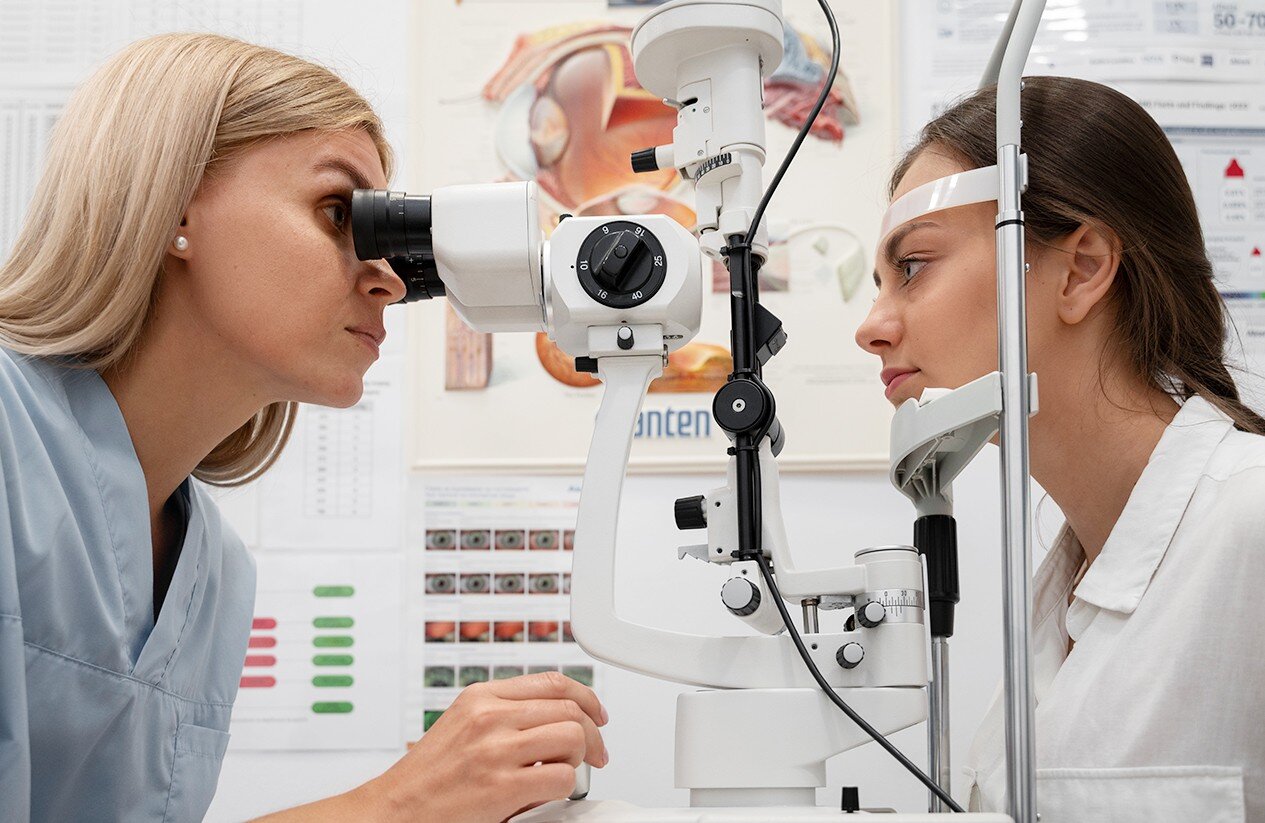- GlassesShop By FrameShop By StyleFeatured












Your eyeglass prescription isn’t valid forever—and that’s not just a minor issue. Understanding the expiration date of your glasses prescription is essential for your eye health and for making sure you’re always seeing clearly. Let’s explore what prescription expiration means, why it matters, and what you can do when your prescription is out of date.

Like your eyesight, your prescription can change over time. Whether due to age, lifestyle changes, or health conditions, your vision might improve or worsen gradually. An expired prescription means it’s time for a fresh eye exam to ensure your glasses are meeting your current vision needs. Most U.S. states require eyeglass prescriptions to be renewed every 1 to 2 years, depending on local laws and your doctor’s recommendation. Regular checkups also help detect early signs of eye conditions such as glaucoma or macular degeneration.
Your eyes are constantly working, and when your prescription no longer matches your vision needs, your body tends to send signals. Here are some common signs that it might be time to update your eyeglass prescription:
• Frequent Headaches – Experiencing headaches after reading, working on a computer, or scrolling on your phone? It could be a result of visual fatigue caused by an outdated prescription.
• Blurred or Distorted Vision – Whether it’s difficulty seeing far away or trouble reading up close, blurry vision can indicate changes in your eyesight that require correction.
• Squinting Often – If you find yourself narrowing your eyes to see clearly, it may be a sign that your lenses are no longer providing the right level of support.
• Difficulty Seeing at Night – Trouble with night driving or low-light environments could mean your prescription isn’t giving you the sharpness you need.
• Eye Fatigue – Feeling tired after short periods of reading or screen time? Overworking your eyes is a common result of using the wrong prescription.
• Double Vision – Seeing two images instead of one can point to issues beyond a basic prescription—this symptom should be evaluated by an eye care professional right away.
• Halos Around Lights – If lights seem to have a halo or glare effect, especially at night, it could be another clue that your lenses need updating.
If any of these symptoms sound familiar, it’s time to book an eye exam. An accurate, up-to-date prescription will not only improve your vision but also reduce unnecessary strain and discomfort in your daily life.
Using an expired eyeglass prescription is not recommended, and here’s why:
Your glasses prescription is designed to reflect your current vision. Over time, natural changes such as aging, shifts in health, or increased screen use can alter your eyesight. Relying on an outdated prescription may result in discomfort and poor vision correction.
Additionally, U.S. regulations enforced by the Federal Trade Commission (FTC) require that prescriptions have a limited validity—typically one to two years—to ensure patients receive timely eye care. Eye exams are about more than just updating numbers. They help detect early signs of conditions like glaucoma, cataracts, or retinal issues—many of which don’t show symptoms at first.
Using an expired prescription might seem convenient, but it can cause problems such as:
• Eye strain and fatigue
• Blurred or distorted vision
• Frequent headaches
• Missed detection of underlying eye issues
To keep your vision clear and your eyes healthy, it’s always best to schedule regular eye exams and purchase glasses with a valid, up-to-date prescription
Your eyes change over time—sometimes gradually, sometimes quickly. These changes can be influenced by aging, screen time, underlying health conditions, and even your environment. Without up-to-date lenses, your vision might suffer, leading to:
• Blurry or distorted vision
• Eye strain and fatigue
• Frequent headaches
• Reduced productivity or difficulty driving
An accurate prescription ensures that your glasses or contact lenses provide optimal vision correction, reducing eye strain and enhancing your day-to-day quality of life.
The recommended frequency for eye exams varies depending on your age, medical history, and risk factors, but here are some general guidelines:
• Adults (18–60 years): Every 1–2 years
• Adults 61 and older: Annually, or as recommended
• Children:
♦ First exam at 6 months
♦ Second exam before starting school
♦ Ongoing exams every 1–2 years or as needed
Pro Tip: If you're experiencing symptoms like blurry vision, eye fatigue, or headaches, don’t wait for your scheduled checkup—book an eye exam sooner.
Whether you wear glasses for fashion, function, or both, renewing your prescription regularly helps protect your vision and your comfort. For the best eye health:
• Stick to your recommended exam schedule
• Get a full in-person eye exam at least every 1–2 years
• Use online tools as supplements, not substitutes
When you're ready for new glasses, make sure your prescription is up to date—then explore our collection at EFE Glasses, where style, comfort, and clear vision come together.

